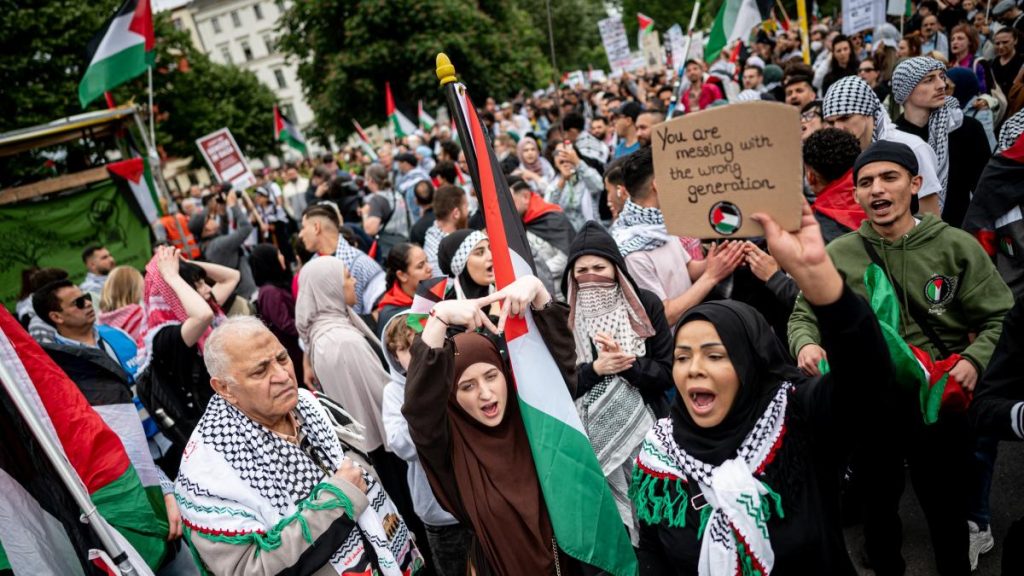Thousands of pro-Palestinian demonstrators gathered in Berlin to commemorate the Nakba Day, which marks the displacement of hundreds of thousands of Palestinians in 1948. The police estimated 6200 participants, exceeding the expected 2000. The march, titled “Palestine will be free,” started at Oranienplatz in Kreuzberg and moved towards the Red City Hall. The police presence of around 500 officers witnessed the use of firecrackers and pyrotechnics, resulting in 25 reported incidents.
The demonstration featured banners supporting Hamas, including a prominent red triangle symbol, associated with the terrorist group. Other signs displayed conspiracy theories of genocide in Gaza and messages from left-wing parties and LGBTQ groups. The police had to intervene several times to address the use of pyrotechnics and banned slogans. Transparent banners were tied in knots, and umbrellas were opened to hinder documentation efforts by law enforcement. A total of 25 criminal complaints were filed, with restrictive measures taken to verify participants’ identities.
Prior to the protest, the police issued guidelines prohibiting calls for violence, defamation, and expressions advocating the destruction of Israel or support for terrorist groups like Hamas. A banned slogan, “From the river the sea,” was reportedly shouted from a speaker’s vehicle and promptly removed by the authorities. FDP politician Karoline Preisler also joined the demonstration as a lone counter-protester, holding photos of Hamas victims, sparking a reaction from some demonstrators and requiring police protection.
The demonstration ended with 2500 participants reaching the designated endpoint. Nakba Day is significant for Palestinians as it commemorates the displacement following Israel’s establishment in 1948. Earlier in the week, smaller protests led to unrest in Neukölln, with clashes between around 600 participants in Charlottenburg. Individuals vandalized property, set fires, and threw objects onto the streets. These incidents are part of a series of demonstrations in Berlin since the Hamas terrorist attack on Israel, with over a thousand related cases being handled by the Berlin prosecutor’s office.
The ongoing tensions surrounding the Israel-Palestine conflict have resulted in multiple demonstrations and legal actions across Berlin. Various forms of misconduct, including incitement of hatred, property damage, and support for terrorist organizations, have been observed during these protests. The police have been vigilant in enforcing regulations and responding to disruptive behavior, ensuring public safety and compliance with the law. These incidents underscore the complex dynamics and challenges associated with activism and political expression in a multicultural society like Germany.















